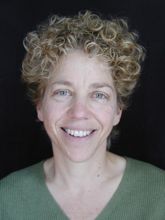Julie Diamond, Ph.D. is part of the original group who helped develop Process-oriented Psychology – also known as Process Work. She co-authored its international training program and its Master of Arts degree programs in Portland, Oregon, based on its teachings. About Process Work, Julie writes: “Process Work is based on the simple, yet profound premise that the fluid transfer of information and experience between subjective, imaginative states of mind and our ‘everyday,’ objective, rational mind is critical for our psychological and physical well-being. Research into consciousness, health, creativity, and psychology increasingly supports this idea that the mind is much more than our everyday rational intelligence. The power of emotions, feelings, fantasies, dreams, and other so-called non-linear or non-rational states of consciousness play a key role in our physical health, emotional stability, and psychological well-being.” Julie helps individuals, organizations and communities embrace change, challenges and conflict as vehicles of growth. She is a long-time colleague and student of Jungian Analyst, Dr. Arnold Mindell, is one of the original founders of the Research Society for Process-oriented Psychology in Zurich, Switzerland, and the Process Work Institute in Portland, Oregon. Julie has been a central figure in developing learning centers for Process-oriented Psychology in Switzerland, North America, Australia and New Zealand. She is the author, with Lee Spark Jones, of A Path Made by Walking: Process Work in Theory and Practice (2005), a comprehensive and widely-used text on Process Work theory and methods. She has written several articles on the psychology of democracy. Her article, “A Democracy Dialogue: Getting to the Essence of Freedom,” explores how psychology’s subtlest reaches expand democracy beyond freedom from constraint to the freedom of self-actualization. Julie is currently working on a new book, A User’s Guide to Power.
(Psychology podcast by David Van Nuys, Ph.D.)
Podcast: Play in new window | Download
Subscribe: Apple Podcasts | RSS

Dr. Dave you are an excellent interviewer. The questions were carefully building up to get the picture through. Great craftsmanship!
Anne
I agree with Anne, Dr Dave is such an excellent interviewer in the way he makes the interview seem like a conversation, yet is able to draw out the most salient points in the exchange with his guests.
I was gratified to hear in this interview with Julie Diamond, that their training of therapists emphasizes the self-knowledge and inner calling of the prospective therapist. It is such a potential minefield for vulnerable people in the general population who are looking for a good therapist, when all it takes is some academic work and a bit of supervision to be ‘qualified’ to treat people. It will be much safer when the field does become more egalitarian, and people are less prone to idealize a therapist. Or does the very nature of the therapeutic set-up, that hot-house combination of circumscribed time and place, make for the inevitable transference?
Thank you for this interview Dr Dave. Legend – can’t say less than that.
Julie didn’t talk much about the view of process work that “disorders” are more seen as extremes of what we all experience (eg. downtimes – depression, rushes of anxiety and elation that are temporary or related to big events in life – mania/psychosis, fears of something going wrong – OCD, etc.) and deep democracy (attitude of acceptance of any part of yourself/position/role as possibly useful and worth playing out) which are parts I love, but you can’t fit everything into an intro.
Thanks again,
Tim
Well, Tim, stay tuned! There will definitely is more on Process Work to come.
David
Hi Dr Dave,
Great interview with Julie. Process work has such diverse applicaitons that a 1 hour interview only just begins to give you a flavour of it. Thoroughly enjoyed the interview and look forward to more process work to come. Thanks for your program – I enjoy it greatly.
Lynn